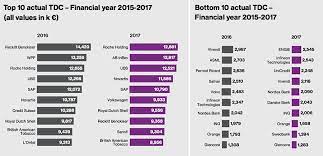Strategic Corporate Reputation Management: Building Trust and Credibility
The Importance of Corporate Reputation Management
In today’s highly competitive business environment, corporate reputation plays a crucial role in the success and sustainability of a company. Corporate reputation refers to how a company is perceived by its stakeholders, including customers, employees, investors, and the general public.
Effective corporate reputation management involves proactively shaping and maintaining a positive image of the company while also being prepared to address any negative perceptions or crises that may arise. Here are some key reasons why corporate reputation management is essential:
Building Trust and Credibility
A strong corporate reputation helps build trust and credibility with customers, investors, and other stakeholders. When a company is seen as trustworthy and reliable, customers are more likely to choose its products or services, investors are more inclined to invest in the company, and employees feel proud to be associated with it.
Attracting Top Talent
A positive corporate reputation can also attract top talent to the company. Job seekers are increasingly looking beyond salary and benefits; they want to work for companies with a good reputation for ethical business practices, employee satisfaction, and social responsibility.
Managing Crises Effectively
In today’s digital age where news spreads rapidly through social media and online platforms, companies are more vulnerable than ever to reputational damage. Effective corporate reputation management involves being prepared to handle crises swiftly and transparently to minimize negative impact on the company’s image.
Driving Business Growth
A positive corporate reputation can differentiate a company from its competitors and drive business growth. Customers are more likely to choose a company they trust and respect, leading to increased sales and market share.
Enhancing Brand Value
Corporate reputation is closely linked to brand value. A strong corporate reputation enhances brand value by creating positive associations with the brand in the minds of consumers. This can lead to increased brand loyalty and advocacy.
In conclusion, corporate reputation management is not just about maintaining a good image; it is about building trust, credibility, and long-term relationships with stakeholders. Companies that invest in managing their corporate reputation effectively are better positioned to succeed in today’s competitive business landscape.
Six Essential Tips for Effective Corporate Reputation Management
- Establish clear communication channels with stakeholders.
- Monitor online conversations and address any negative feedback promptly.
- Maintain transparency in business practices and decision-making processes.
- Build strong relationships with the media to manage public perception effectively.
- Invest in employee training on how to uphold the company’s reputation.
- Respond to crises swiftly and proactively to mitigate reputational damage.
Establish clear communication channels with stakeholders.
Establishing clear communication channels with stakeholders is a crucial tip in corporate reputation management. By maintaining open and transparent lines of communication with customers, employees, investors, and the public, companies can build trust, address concerns promptly, and enhance their reputation. Clear communication helps ensure that stakeholders are informed about company activities, decisions, and values, fostering a sense of transparency and accountability. This proactive approach not only strengthens relationships with stakeholders but also helps mitigate potential reputation risks by addressing issues before they escalate. Effective communication channels serve as a foundation for building a positive corporate reputation and sustaining long-term success in today’s competitive business landscape.
Monitor online conversations and address any negative feedback promptly.
Monitoring online conversations and addressing any negative feedback promptly is a crucial aspect of effective corporate reputation management. In today’s digital age, where information spreads rapidly across various online platforms, companies must stay vigilant and responsive to what is being said about them. By actively monitoring online conversations, companies can identify potential issues early on and take swift action to address them. Promptly addressing negative feedback demonstrates transparency, accountability, and a commitment to customer satisfaction, helping to safeguard the company’s reputation and maintain trust with stakeholders.
Maintain transparency in business practices and decision-making processes.
Maintaining transparency in business practices and decision-making processes is a fundamental tip in corporate reputation management. By being open and honest about how the company operates and the reasons behind key decisions, businesses can build trust with stakeholders. Transparency not only enhances credibility but also demonstrates integrity and accountability, which are essential for fostering positive relationships with customers, investors, employees, and the wider community. Embracing transparency can help companies navigate challenges more effectively and safeguard their reputation in the long run.
Build strong relationships with the media to manage public perception effectively.
Building strong relationships with the media is a crucial tip in corporate reputation management as it allows companies to effectively manage public perception. By cultivating positive relationships with journalists, bloggers, and other media professionals, businesses can ensure that their messages are accurately conveyed to the public. This proactive approach not only helps in shaping a favourable image but also enables companies to address any potential issues or crises promptly and transparently. Strong media relationships can enhance credibility, increase visibility, and ultimately contribute to maintaining a positive corporate reputation in the eyes of the public.
Invest in employee training on how to uphold the company’s reputation.
An essential tip for effective corporate reputation management is to invest in employee training on how to uphold the company’s reputation. Employees are often the face of the company and can significantly impact how the company is perceived by customers, investors, and the public. By providing training on the importance of maintaining a positive image, handling customer interactions professionally, and adhering to ethical business practices, employees can become valuable ambassadors for the company, contributing to a strong and positive corporate reputation.
Respond to crises swiftly and proactively to mitigate reputational damage.
In the realm of corporate reputation management, it is crucial to respond to crises swiftly and proactively in order to mitigate potential reputational damage. By addressing issues promptly and transparently, companies can demonstrate accountability and a commitment to resolving challenges. Taking swift action can help contain the impact of a crisis, reassure stakeholders, and preserve trust in the company’s integrity and values. Proactive crisis management not only minimises negative repercussions but also showcases a company’s ability to navigate challenges effectively, ultimately safeguarding its reputation in the long term.









